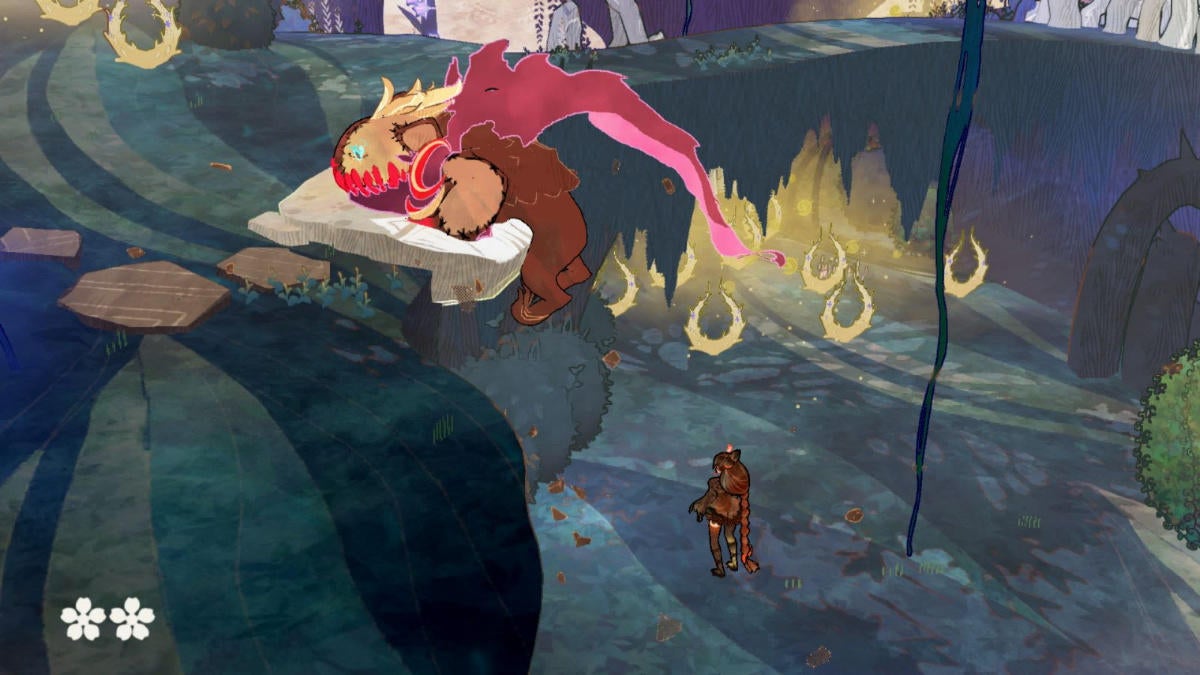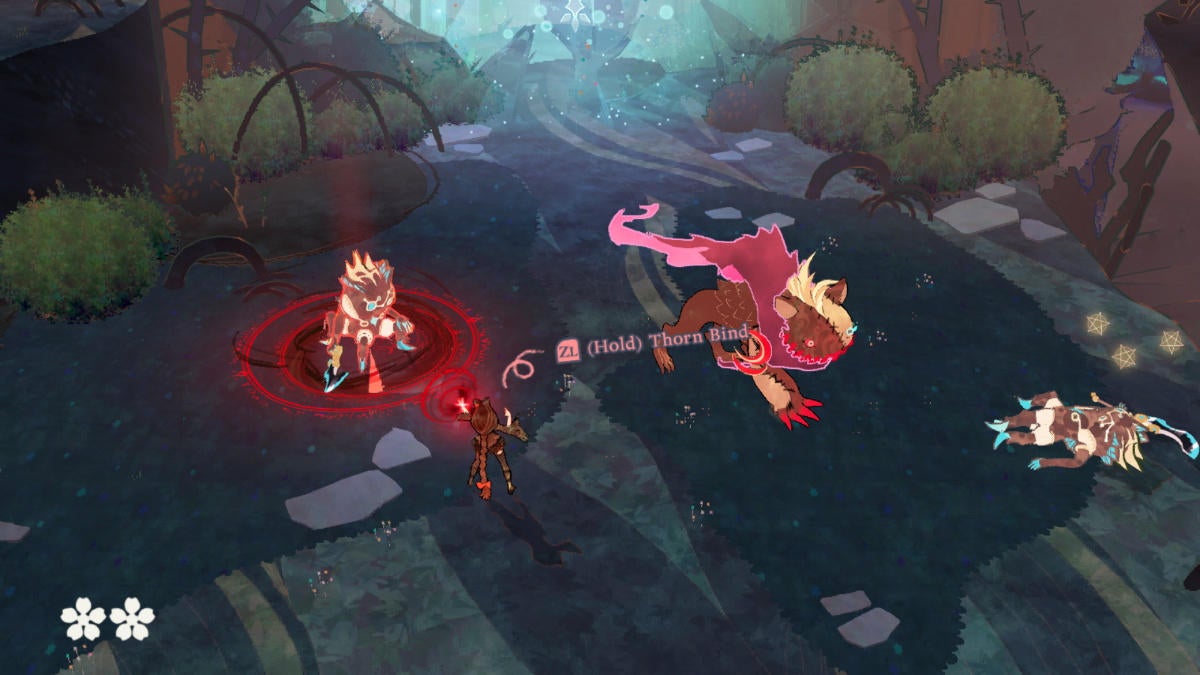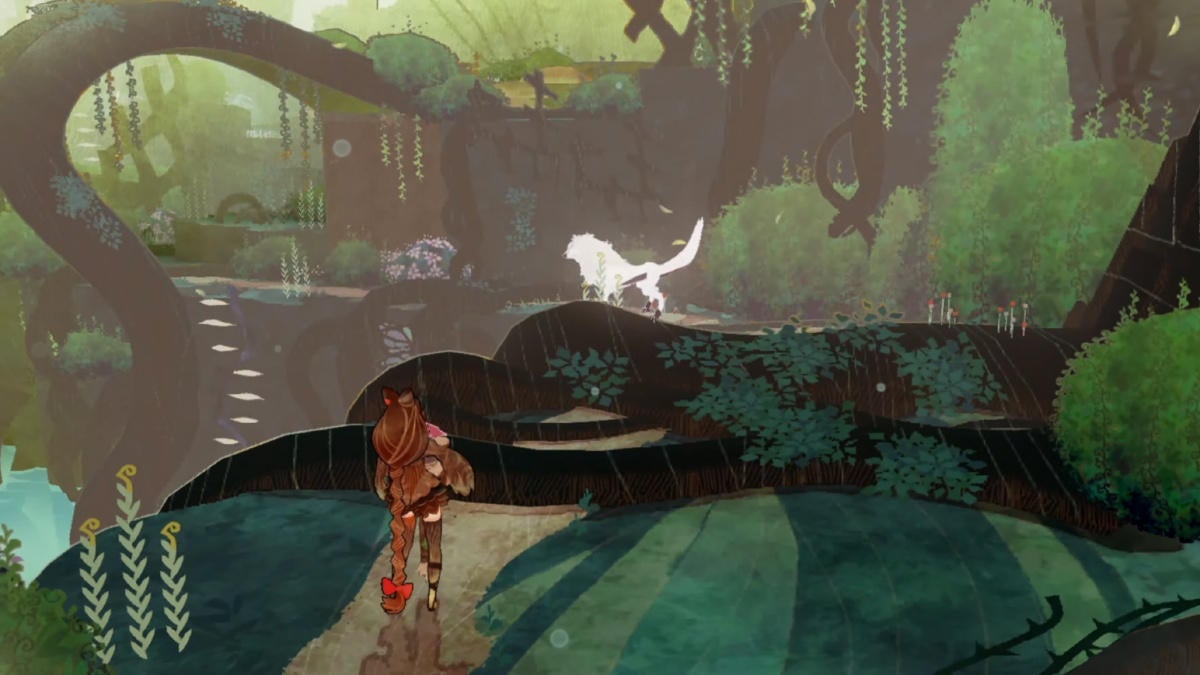Bayonetta Origins: Cereza and the Lost Demon Review: Prequel Perfection
Bayonetta Origins: Cereza and the Lost Demon may have been one of the most unexpected announcements of the Nintendo Switch era. Revealed just two months after the release of Bayonetta 3, the prequel looked nothing like its predecessors. Taking a break from Bayonetta's action game roots and leather-clad outfits, Bayonetta Origins instead offers a storybook-inspired adventure game detailing Cereza's time as a young girl. Given how wildly different the game looked from the rest of the series, it's not surprising that series creator Hideki Kamiya asked fans to "approach this title with a fresh, open mind" in a blog post shared last year. It might not be what anyone was expecting, but those that do give Bayonetta Origins a chance will be rewarded with an unforgettable journey.
At the start of Bayonetta Origins, Cereza is an Umbra Witch in training under her master Morgana. Cereza's mother was imprisoned for having a relationship with an angel, and the young girl frequently dreams of rescuing her. One day, that dream is interrupted by the appearance of a mysterious boy, who tells her that she can discover the power to save her mother by tracking a white wolf inside Avalon Forest, a location Morgana has forbidden her to visit. Against her teacher's wishes, Cereza sneaks off into the forest, where she summons a demon for the first time. However, the summon isn't quite successful, with it transferring to her stuffed toy, Cheshire. Unable to send the demon back to Inferno, Cereza promises "Cheshire" that she will have Morgana do so after their quest comes to an end.

The core gameplay in Bayonetta Origins centers around simultaneously controlling Cereza and Cheshire, using their individual strengths to navigate the forest. Players control Cereza with the left stick and Cheshire with the right, but can transfer Cheshire back to the stuffed toy in moments where both characters aren't needed to progress. There are a lot of clever puzzles throughout Avalon, as well as the game's Tir na nOg locations, but once players have gotten the hang of using the two characters in unison, it quickly starts to feel natural.
Controlling Cereza and Cheshire is also key to the game's combat. When the duo runs into Faeries, Cheshire does the majority of the fighting, using his powerful teeth and claws, while Cereza uses binding spells to hold them in place. Cheshire can't actually be killed in combat, but Cereza can, so players have to concentrate on keeping her out of the line of attack. Cheshire can run out of magic, at which point he'll revert to his doll form, requiring Cereza pick him up and hug him until he's ready to jump back into battle. Throughout the game, players will destroy four Elemental Cores, each of which unlocks new abilities for Cheshire. Those can be used both in combat, and to reach previously inaccessible locations on the map.

The dynamic between Cereza and Cheshire isn't just central to the gameplay, it's also at the heart of the storyline in Bayonetta Origins. In the first three Bayonetta games, Cereza's confidence is on full display, but we learn quickly that things weren't always that way. When Bayonetta Origins begins, Cereza is completely in over her head, and her trademark confidence is nowhere to be found. Cheshire doesn't do much to help, and the two butt heads throughout the majority of the game. The demon is constantly snapping at the weak-willed Cereza, blaming her for his situation. However, Cereza's confidence grows as the game goes on, and she's not the same character by the time the credits roll. It really feels like a meaningful part in Bayonetta's overall journey, and it gave me a much deeper appreciation for her character than I had before.
The presentation in Bayonetta Origins is really striking, offering a vibrant world that perfectly nails the game's storybook aesthetic. The watercolor-inspired visuals feel like an evolution of Kamiya's work on Okami, with a bit of Where the Wild Things Are thrown in for good measure. The graphics are bound to be jarring for fans that have been with the series since 2009, but still images really don't do the game justice. The graphics pop off the screen, and even the most hesitant Bayonetta fans should find themselves won over by the conclusion. The audio is also fantastic, with several memorable tracks throughout. Angeli Wall also does an impeccable job voicing Cereza, offering a youthful take on the character that stands out from Bayonetta's previous depictions.

Bayonetta Origins isn't quite flawless, but it is pretty close. The game's beginning is a little bit dull and had me worried that the rest of the game would be the same. Thankfully, those fears quickly melted away. Fans looking for a steep challenge might also find themselves a little turned off; Bayonetta Origins is quite forgiving, offering a metric ton of save points, and fights that rarely prove to be too challenging, especially if you make enough potions. Still, these are minor quibbles, and hardly detract from an experience that does so much right.
Bayonetta Origins: Cereza and the Lost Demon might be one of the most pleasant surprises of the Nintendo Switch era. I went into the game with a lot of apprehension, but found myself unable to put it down. The title simultaneously offers a perfect entry point for newcomers, while delivering an experience that should still appeal to longtime fans. The visuals, gameplay, and narrative blend together perfectly, offering a package that should not be missed. Bayonetta Origins proves that there's still so much more that PlatinumGames can do with this franchise. I don't know if the plan is to make more Bayonetta games in this style, but if the developer can keep up this level of quality, I'll be first in line for a sequel.
Rating: 4.5 out of 5
Bayonetta Origins: Cereza and the Lost Demon is set to release March 17th, exclusively on Nintendo Switch. The game was provided by the publisher for the purpose of this review, and it was reviewed on a Nintendo Switch OLED.